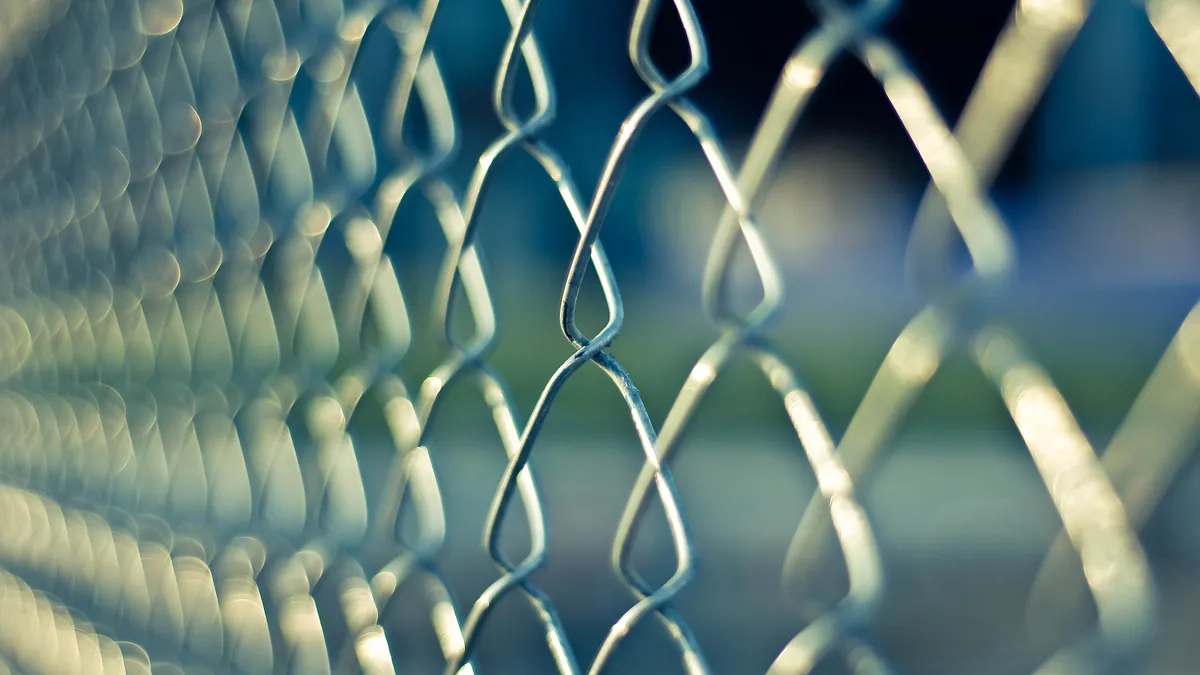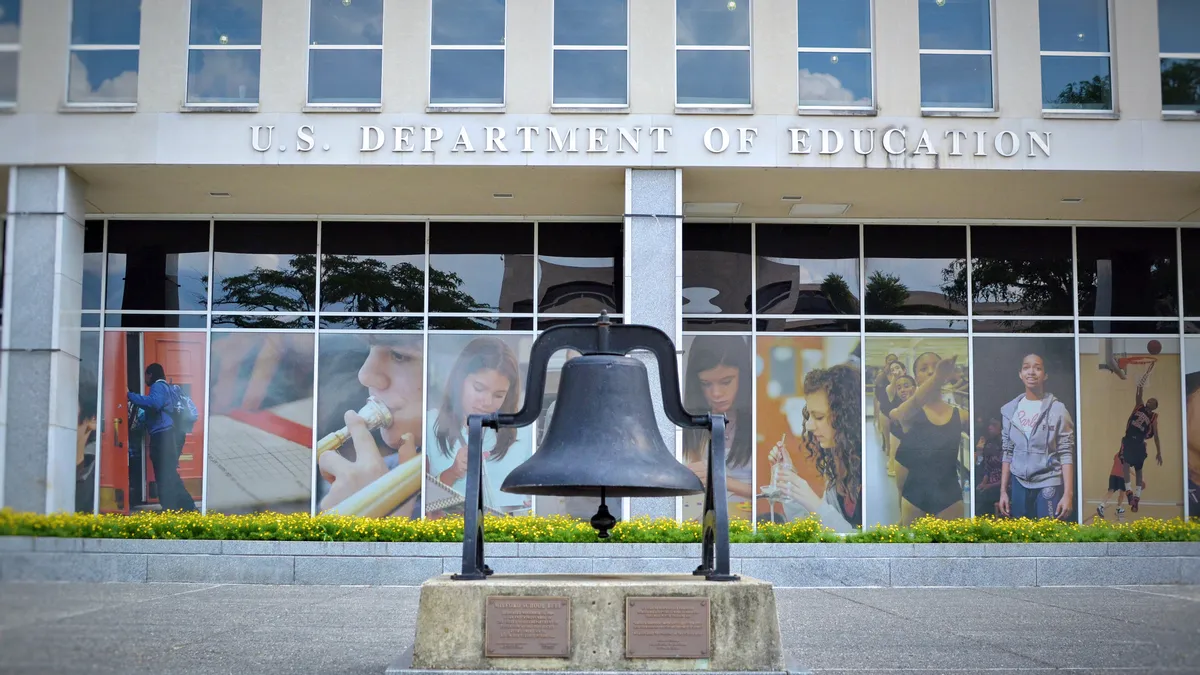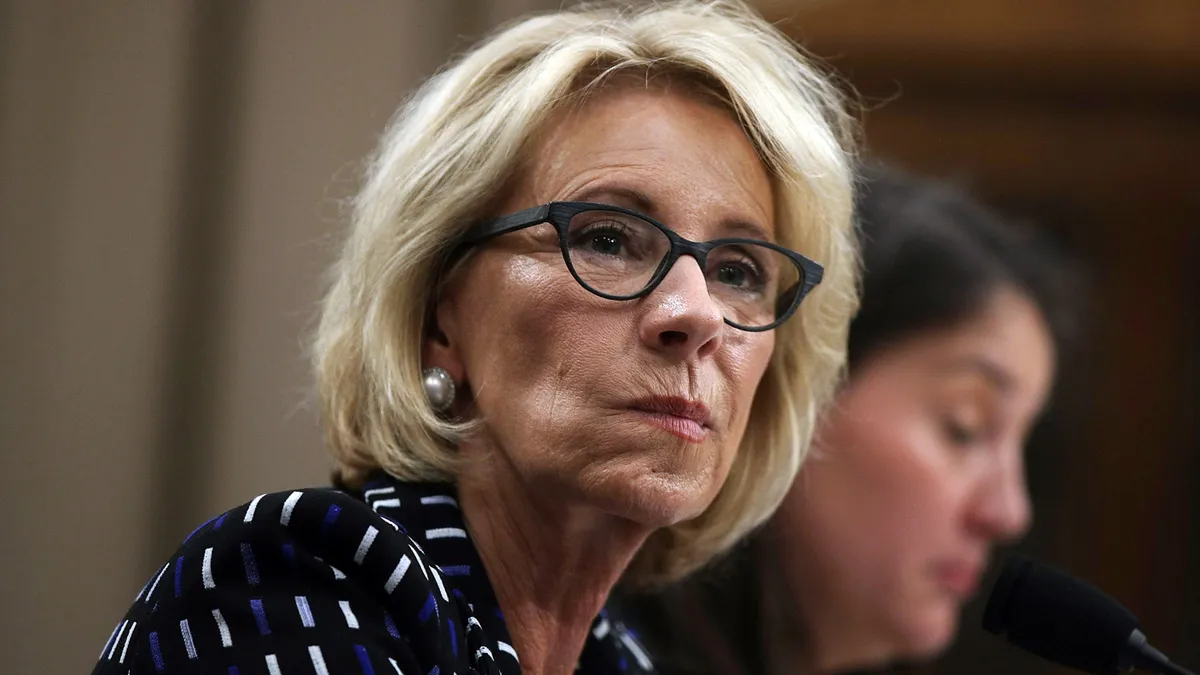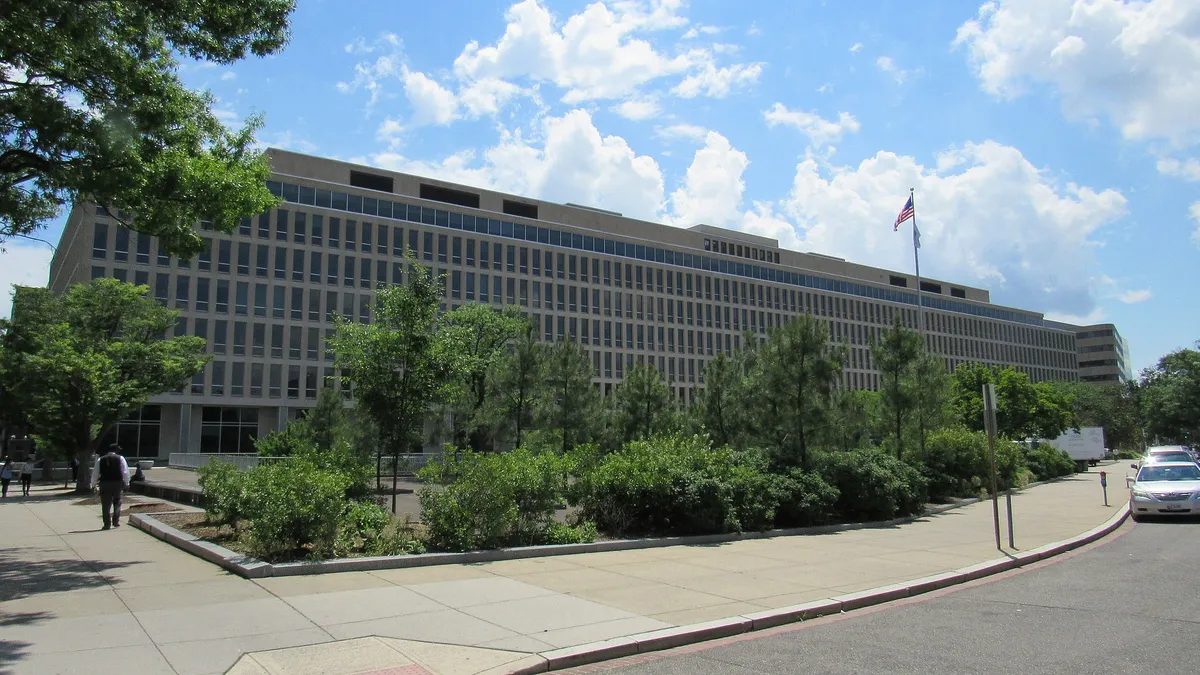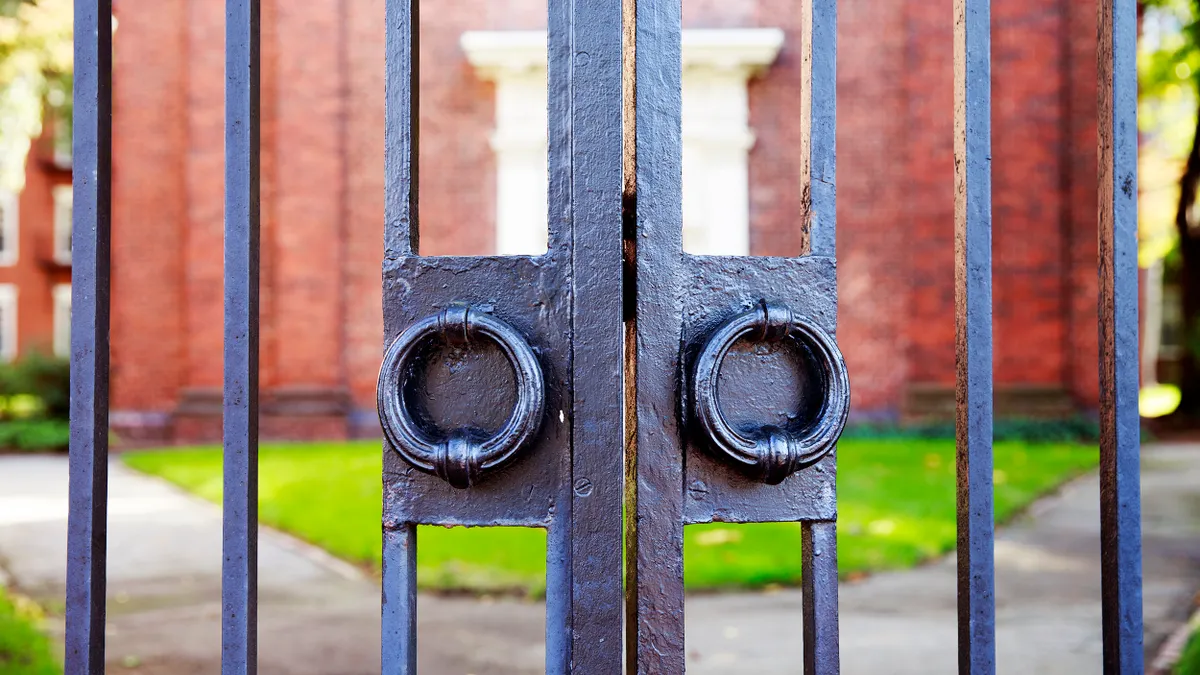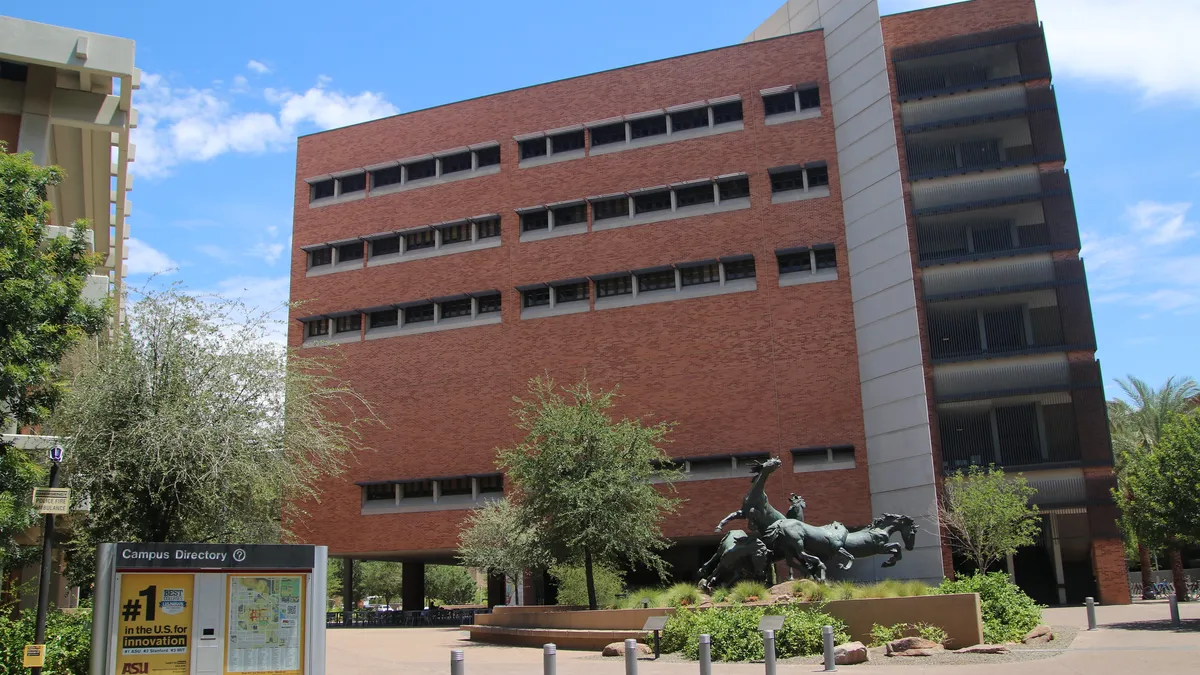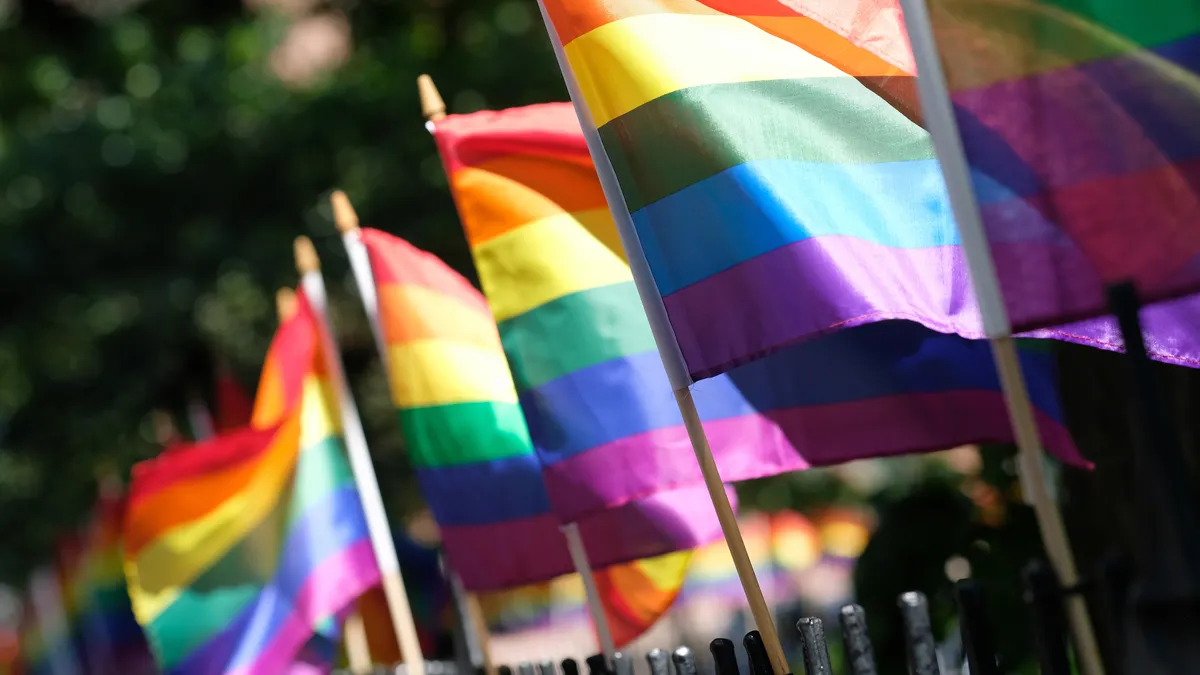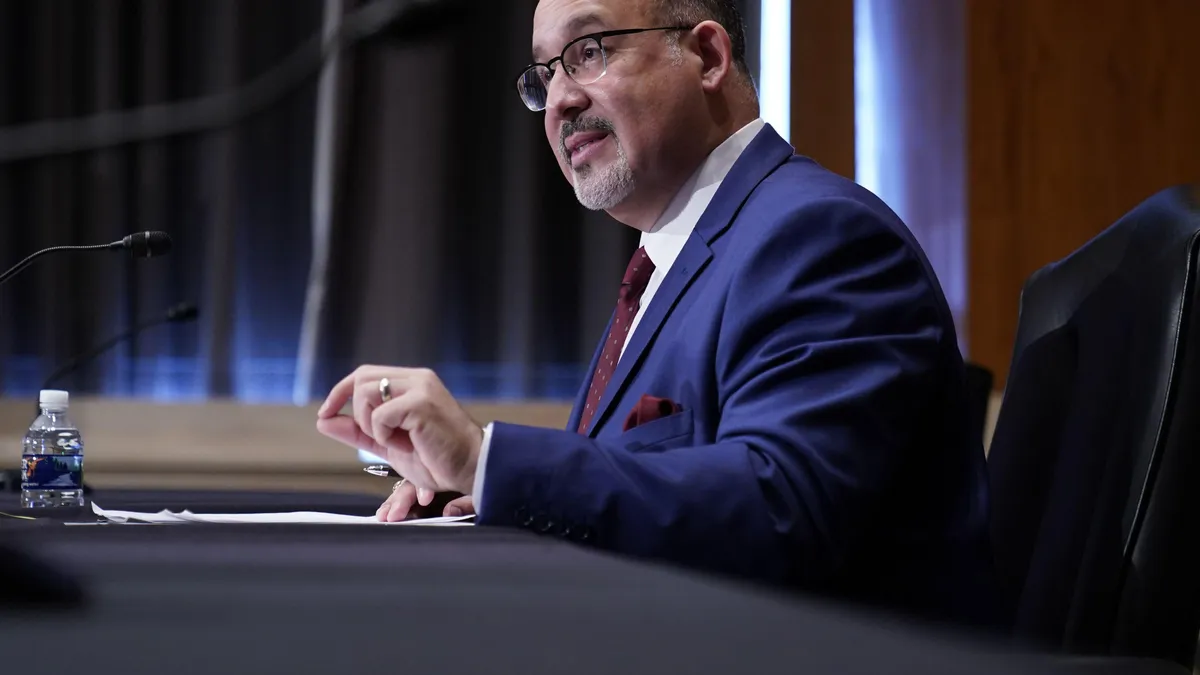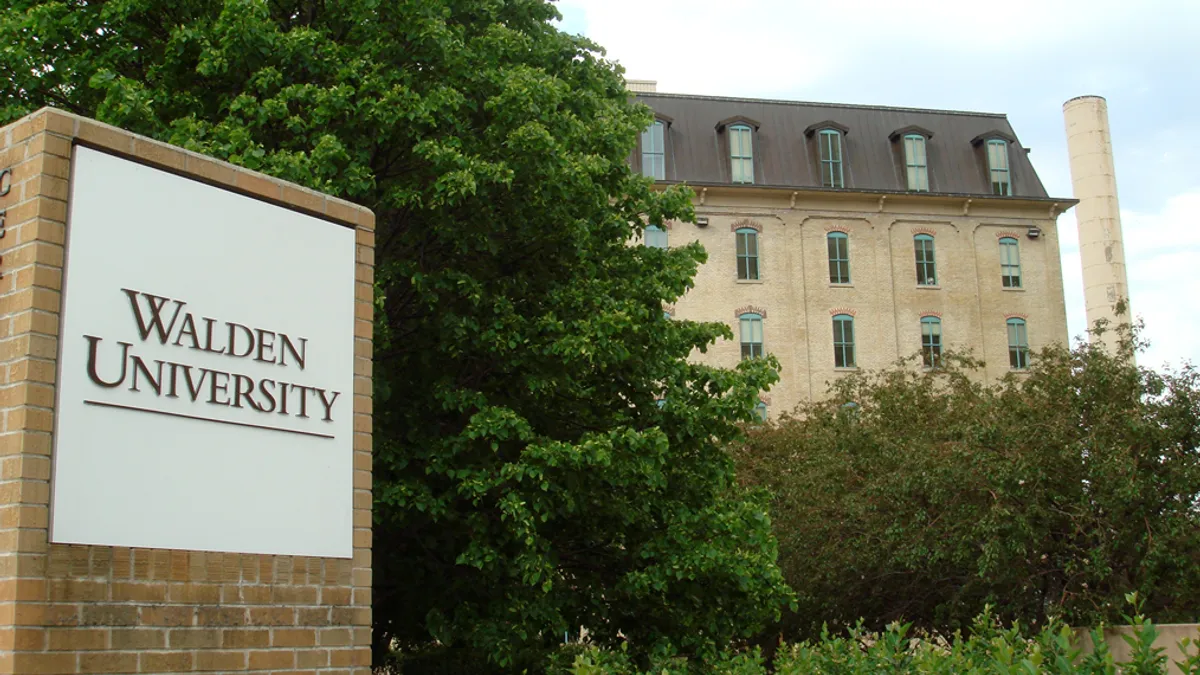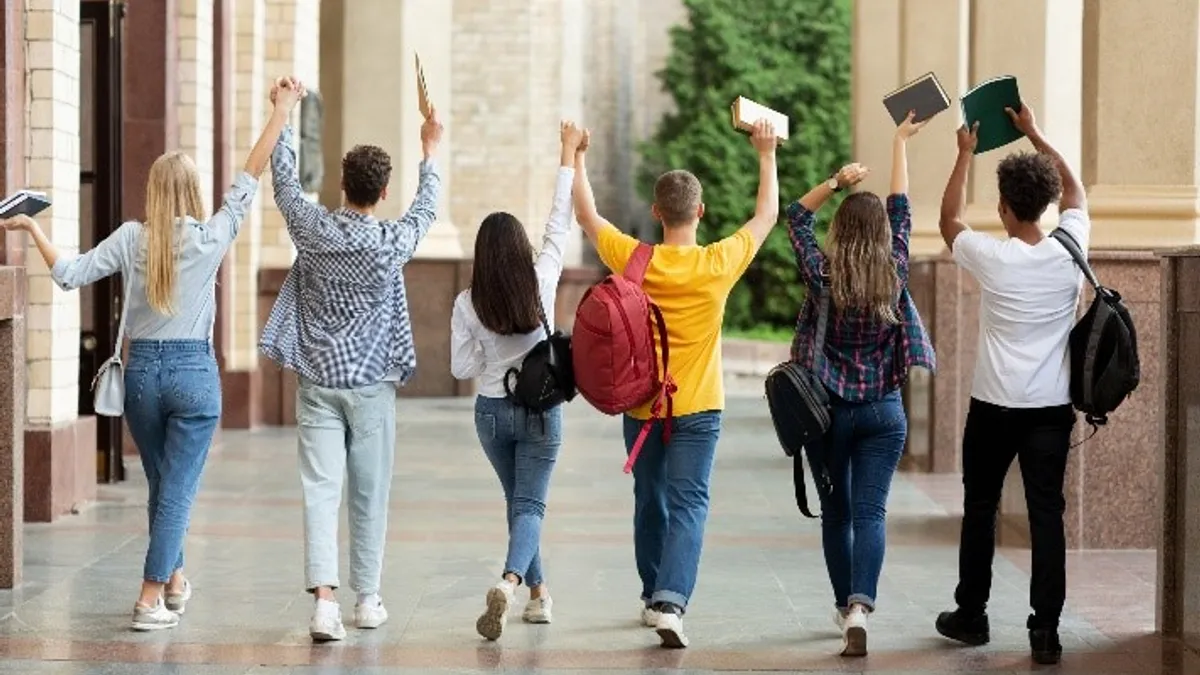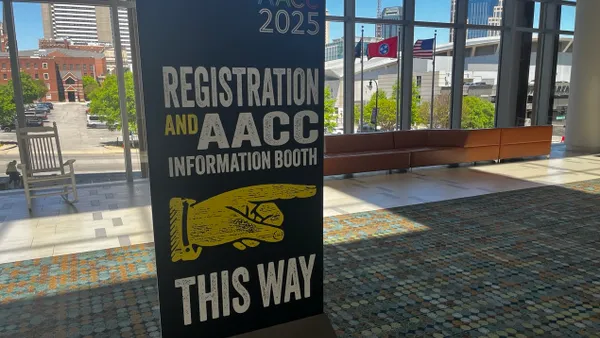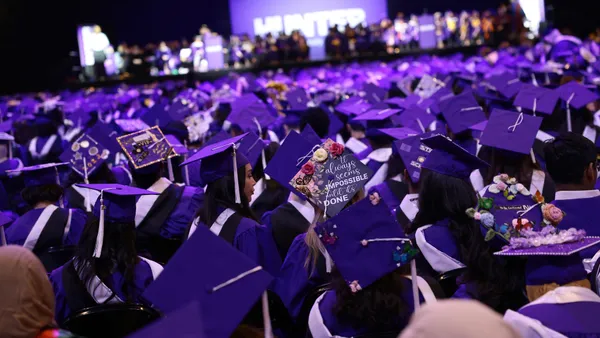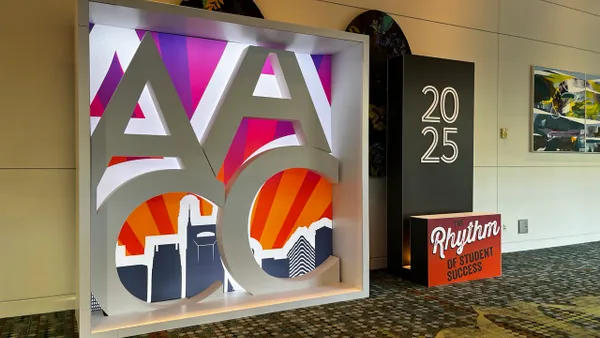Dive Brief:
-
The U.S. Department of Education on Friday announced it will grow the Second Chance Pell program, which gives individuals who are incarcerated the chance to receive federal Pell Grants to pursue a credential.
-
The expansion will add new participating colleges and universities. Now up to 200 will be able to join the experimental site initiative, up from 67 when the program debuted six years ago.
-
The experiment means to study the best way to implement the reinstatement of Pell Grant eligibility for incarcerated students.
Dive Insight:
The Education Department began the Second Chance Pell program in 2015. It aims to evaluate the effects of providing Pell Grants for incarcerated students. The program has had more than 22,000 participants across 30 states and the Federal Bureau of Prisons since its inception, according to the department.
Under the Trump administration, former Education Secretary Betsy DeVos expanded the program in 2019, doubling the original cap on participating institutions. DeVos said then the experiment had "shown significant promise."
Federal lawmakers last year moved to open educational access to incarcerated people, nixing a restriction in place since 1994 preventing them from using Pell Grants. The 2021 Consolidated Appropriations Act, which former President Donald Trump signed in December, contained a provision that restored Pell Grant eligibility to incarcerated individuals by July 2023. These students must be enrolled in prison education programs approved by their state corrections departments or the federal prison bureau.
The Education Department also announced earlier this year its intent to issue regulations for the program prior to the 2023 implementation date.
While advocates for incarcerated people have applauded this progress, they say questions still remain. Representatives from the Vera Institute of Justice, which has pressed for such changes, said in a blog post in March that they wanted to know how corrections offices would ensure the academic quality of student prison programs and how the programs would be evaluated.
"Institutions — state, federal, and educational alike — must ensure that the programs they provide are well-suited for the students they serve," the post reads.
New coronavirus relief funding
The department this week also announced it is sending more than $3 billion in new coronavirus aid to historically Black colleges and universities, tribally controlled colleges and universities, minority-serving institutions and other under-resourced institutions. HBCUs will receive about $1.6 billion and tribal institutions will get $143 million. About $1.2 billion was set aside for other MSIs.
That new money comes from the American Rescue Plan, which President Joe Biden signed into law in March. The department also announced $225 million in grants it is distributing from previous relief bills, bringing the total announced funding to $3.2 billion



